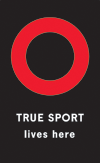Basic 5
Practice Positive Sport
 Participate in sport and physical activity for fun, challenge, and a love of movement while respecting the abilities and limitations of our bodies.
Participate in sport and physical activity for fun, challenge, and a love of movement while respecting the abilities and limitations of our bodies.
Jamila is called a “model athlete” by her basketball coaches and teammates. Selflessly committed to her team, Jamila accepts nothing less than perfection from herself and always shows up at training camp the best-conditioned athlete in the gym. Her teammates know she runs religiously and does one hundred sit-ups and push-ups every day without fail.
"It is the position of the Canadian Academy of Sport Medicine that routine body composition assessment be abandoned for all female athletes…There is a lack of evidence that body composition assessment leads to improved athletic performance. Such an assessment may do harm by promoting anxiety, which may lead to disordered eating."
– from the CASM Position Statement: Abandoning Body Composition Assessment. Clinical Journal of Sports Medicine, Vol. 11, No. 4. August 2001.
Jamila believes that when you’re not training to be a champion, your competitors are and she doesn’t want to lose a step to anybody.
Despite chronic knee problems and recurring muscle strains, Jamila is the leading scorer and rebounder for her team and is often looked to as an inspiration for playing through her nagging injuries and making a strong contribution to her team.
BodySense Connection:
Positive vs. Negative Approaches to Exercise
| Positive Approach | Negative Approach |
|---|---|
| Enjoy physical activity and has a love of sport | Want to lose weight, burn calories or create physical appearances |
| Exercises when their body feels like it and are satisfied with what they accompolish that day - takes days off | Exercises regardless of how they feel - tired, sick, or even injured rarely feel satisfied with their workout, wants to do more |
| Enjoys sport, but does other activities and spends time with their friends and family | Arranges the rest of their life around exercise, or doesn’t have much of a life outside of exercise |
| Feels good after exercise and is happy with whatever the body is able to do that day | Rarely feels satisfied with work-outs and always wants to do more |
| Views sport and exercise as both a group and individual experience and doesn’t compare themselvesto others | Believes accomplishments in sport and exercise reflect self worth as a person and often compares to others |
Note: If an athlete you know has a negative approach to sport and exercise, they may be at risk for compulsive exercise, disordered eating and burnout from sport. Encourage the athlete to seek the help of a qualified professional familiar with these issues.
What coaches and parents can do:
"Participation in sport is an easy way to hide disordered eating because of the misguided idea that weight loss improves performance. Excessive training is also thought to improve the athlete’s performance. This makes it seem okay for an athlete to become obsessed with thinness."
-from the book "Helping Athletes with Eating Disorders" (Thompson & Sherman, Human Kinetics Publishers, 1993.)
Model and encourage a positive approach to exercise and body health. Love and accept your body as it is regardless of weight, shape or size. Exercise and be active because it feels good, not to lose weight. Listen to your body, respect its limitations, celebrate its abilities and avoid comparisons to others.
Be careful about celebrating certain qualities in an athlete. Sometimes the qualities that make an athlete successful also places them at risk for disordered eating, compulsive exercise, serious injury and burnout from their sport.
Emphasize that all bodies are 'good bodies'. Many athletes believe that only certain bodies are beautiful, healthy or fit. Help an athlete to respect that different bodies have unique abilities, and help them to celebrate their own.
Avoid measuring an athlete’s body in any way. Weighing (especially group weigh-ins), body composition testing, body fat calculations, strength-to-weight ratios, and other measurements are harmful to athletes. They promote anxiety about body size and weight and increase the athlete's risk for disordered eating. No proven performance benefits can be matched with any of these body tests.
Involve qualified professionals who are familiar with sport. Only professionals are able to fully provide the resources and care that an athlete needs to stay healthy and well. If a problem arises with an athlete that goes beyond your expertise as a coach or parent, refer them to an appropriate professional, such as a sports medicine physician, sports psychologist, registered dietitian, or disordered eating counselor. Ensure that their approach is consistent with health, wellness, and balance in sport.
Taking Action:
- Learn the signs of over-training and compulsive exercise. While an athlete may engage in disordered eating to change their natural body weight and size, theyt may also engage in "disordered exercise" by using physical activity as a way of controlling their weight. Like disordered eating, compulsive exercise places an athlete’s health and well-being in jeopardy and needs the attention of a qualified professional.
- Ensure that your female athletes are menstruating regularly (each month). Irregular or 'ceased' periods are never a normal side effect of training. Monitoring menstrual periods is recommended and must be done with sensitivity and respect. Have each female athlete choose someone like a mother or doctor to work with her to monitor her menstrual cycle.
- Keep a resource list of professionals who you trust will look out for the health and well being of your athletes. Encourage coaches, parents, and athletes to get in touch with these professionals when they have food, exercise, body image, or disordered eating issues.